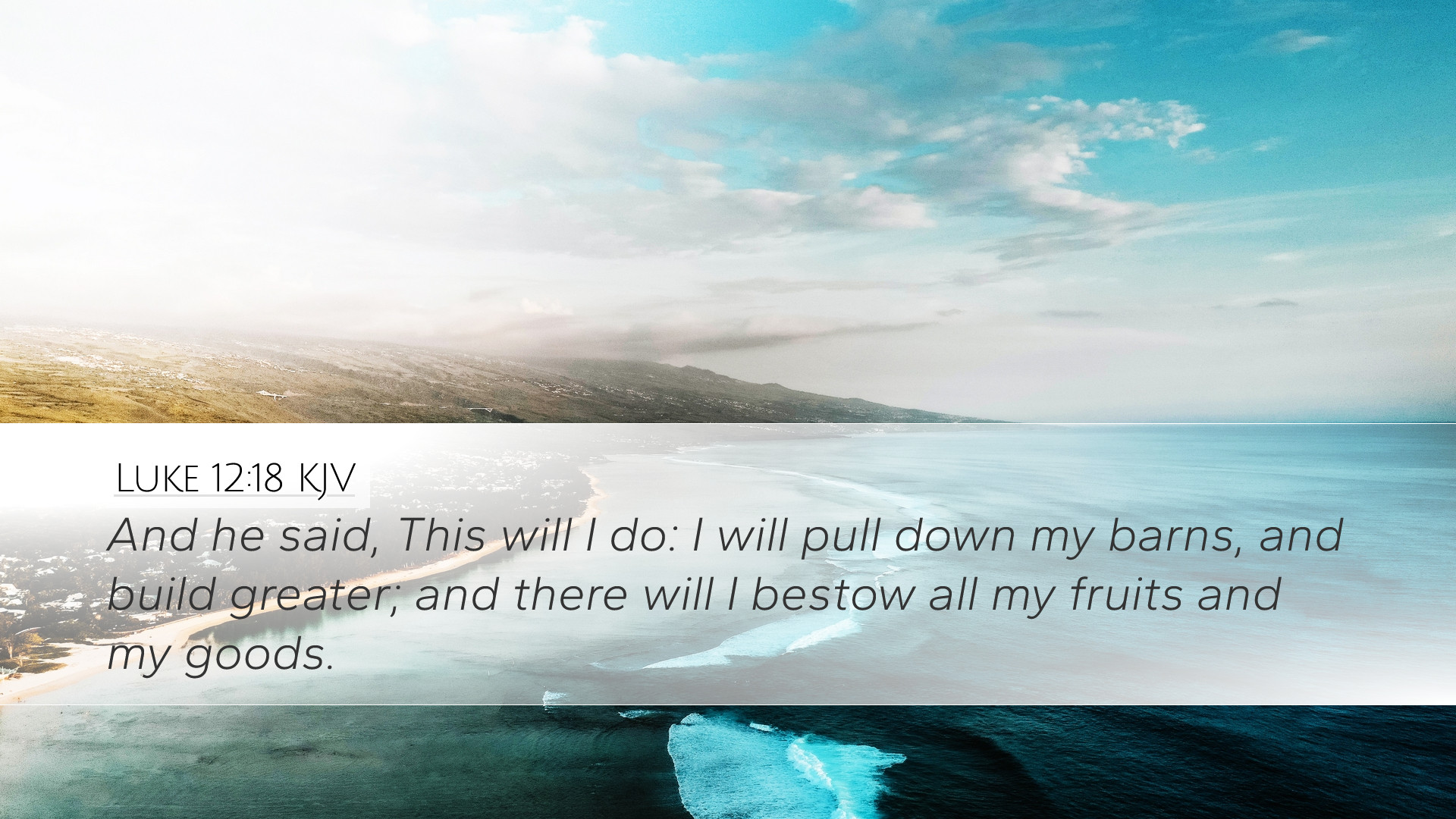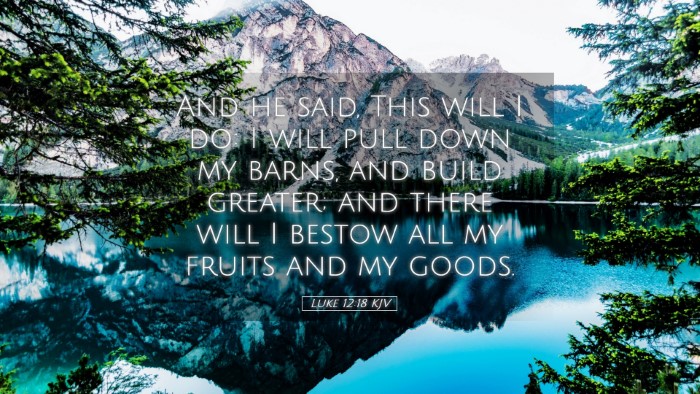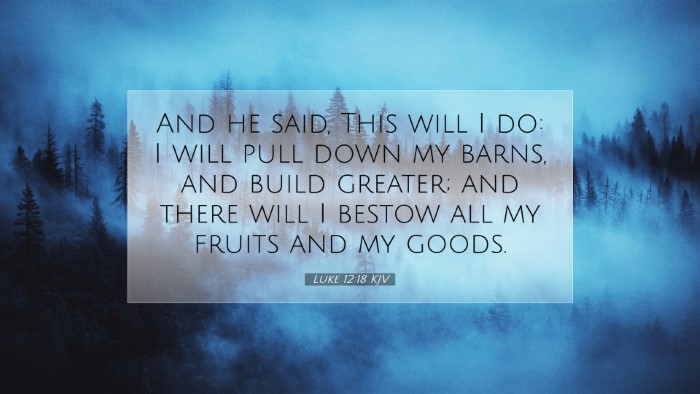Commentary on Luke 12:18
Verse Context: Luke 12:18 states, "And he said, 'I will do this: I will tear down my barns and build larger ones, and there I will store all my grain and my goods.'" This verse comes from the parable of the rich fool, and examines the folly of placing one's security and identity in material wealth.
Introduction
The parable of the rich fool in Luke 12 provides profound reflections on the nature of wealth, human security, and divine judgment. Luke 12:18 encapsulates the rich man's response to an abundance of harvest, revealing a mindset that is often seen in contemporary culture. This commentary synthesizes insights from respected public domain commentaries to explore the spiritual and practical lessons embedded in this verse.
Exegesis and Interpretative Insights
The assertion made by the rich man, "I will do this: I will tear down my barns and build larger ones," reveals a focus on self-sufficiency and accumulation of wealth.
- Self-Centering Attitude: Matthew Henry notes that the rich man demonstrates an egocentric approach to his prosperity, indicating a troubling reliance on his wealth rather than on God. The phrase 'I will' underscores a misguided self-confidence, assuming life is solely in his hands.
- Materialism and Future Plans: Albert Barnes sheds light on the rich man's disregard for the temporal nature of life. Planning for future security through material means, he fails to consider the uncertainty of life and the inevitability of death.
- Divine Oversight: Adam Clarke emphasizes the rich man's blindness to the fact that his soul could be required of him that very night, illustrating the fragility of human plans when contrasted with divine sovereignty.
Theological Themes
This verse encapsulates several theological themes that underpin the Christian faith:
- The Vanity of Materialism: The rich man's choice to build larger barns symbolizes not only greed but also the futility of accumulating worldly wealth. Matthew Henry reminds us of Ecclesiastes 5:10, which states that he who loves money will not be satisfied with money.
- God’s Sovereignty: The narrative invites readers to reflect on the sovereignty and providential control of God over human affairs. The rich man's plans are rendered insignificant by the divine decree that he will not live to enjoy them.
- Eschatological Awareness: This parable serves as a warning about the coming judgment. As Albert Barnes explains, what good is material wealth if it cannot gain eternal life? The rich man's wealth could not protect him from being called to account before God.
Practical Applications
The implications of Luke 12:18 extend to modern readers, inviting reflection on their own relationship with wealth and resources:
- Prioritizing Spiritual Wealth: Believers are encouraged to seek treasures in Heaven rather than earthly possessions. Matthew Henry emphasizes that true riches are found in a relationship with God, which cannot be taken away.
- The Importance of Generosity: Instead of hoarding, Christians are called to be stewards of their resources in service to others. Adam Clarke suggests that our material possessions should be used for God's glory rather than personal gain.
- Preparation for Eternity: Pastors and theologians should challenge congregants to consider the brevity of life and the importance of living in light of eternity. Barnes highlights that the soul's true welfare is the ultimate concern.
Conclusion
Luke 12:18 invites readers to reflect on their priorities and the nature of their trust. The rich man's resolve to build larger barns is a stark reminder that true security lies not in material wealth, but in the eternal riches of a life devoted to God. As we explore this parable, may we examine our own hearts and ensure that we are not entrapped by the same folly that ensnared the rich fool.


